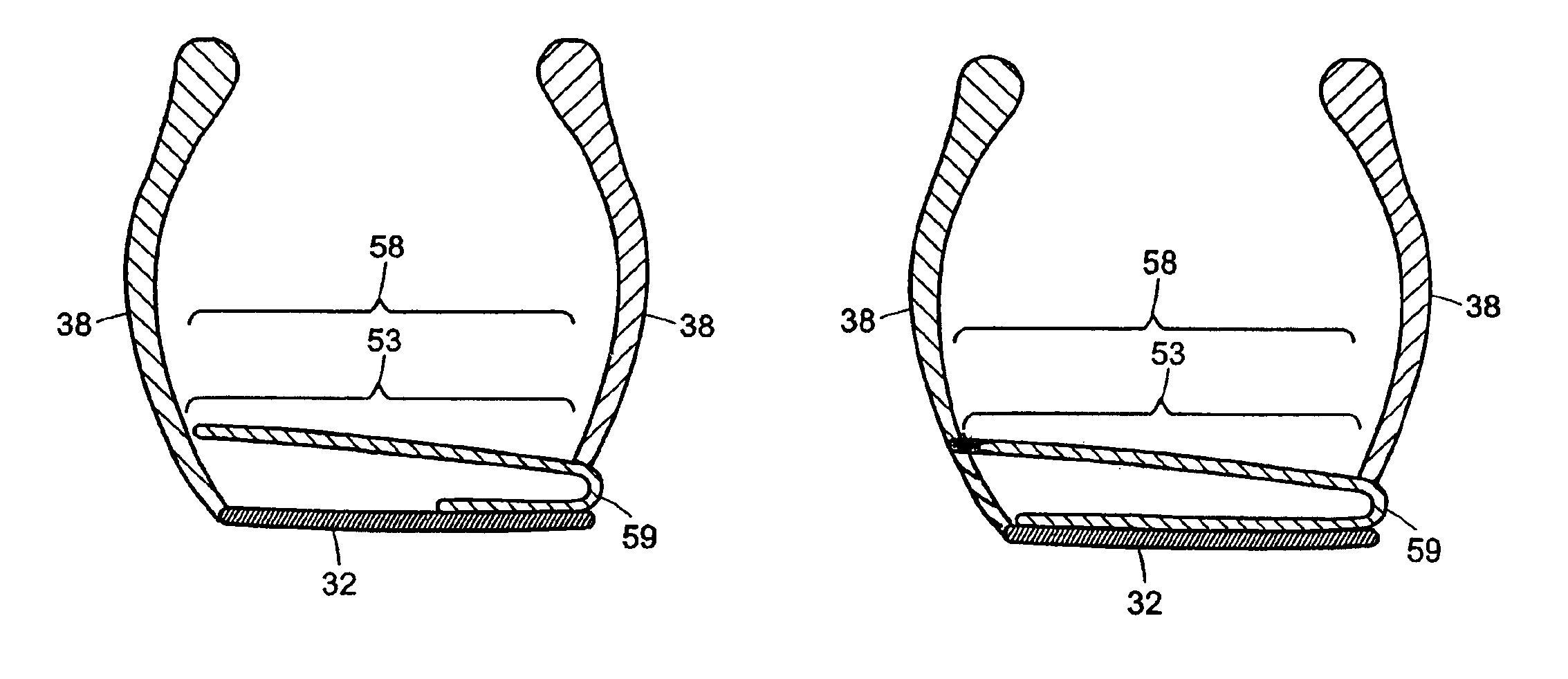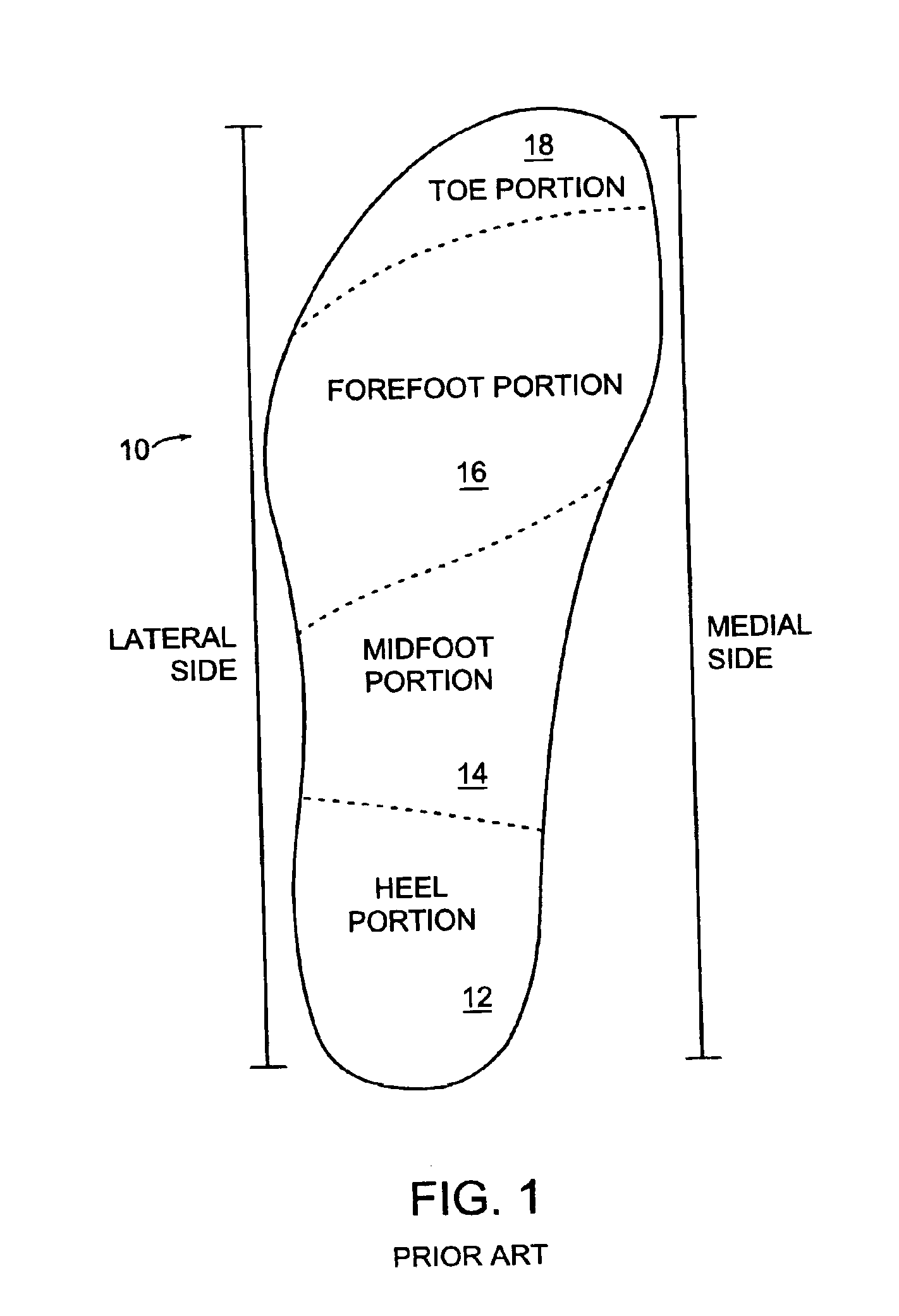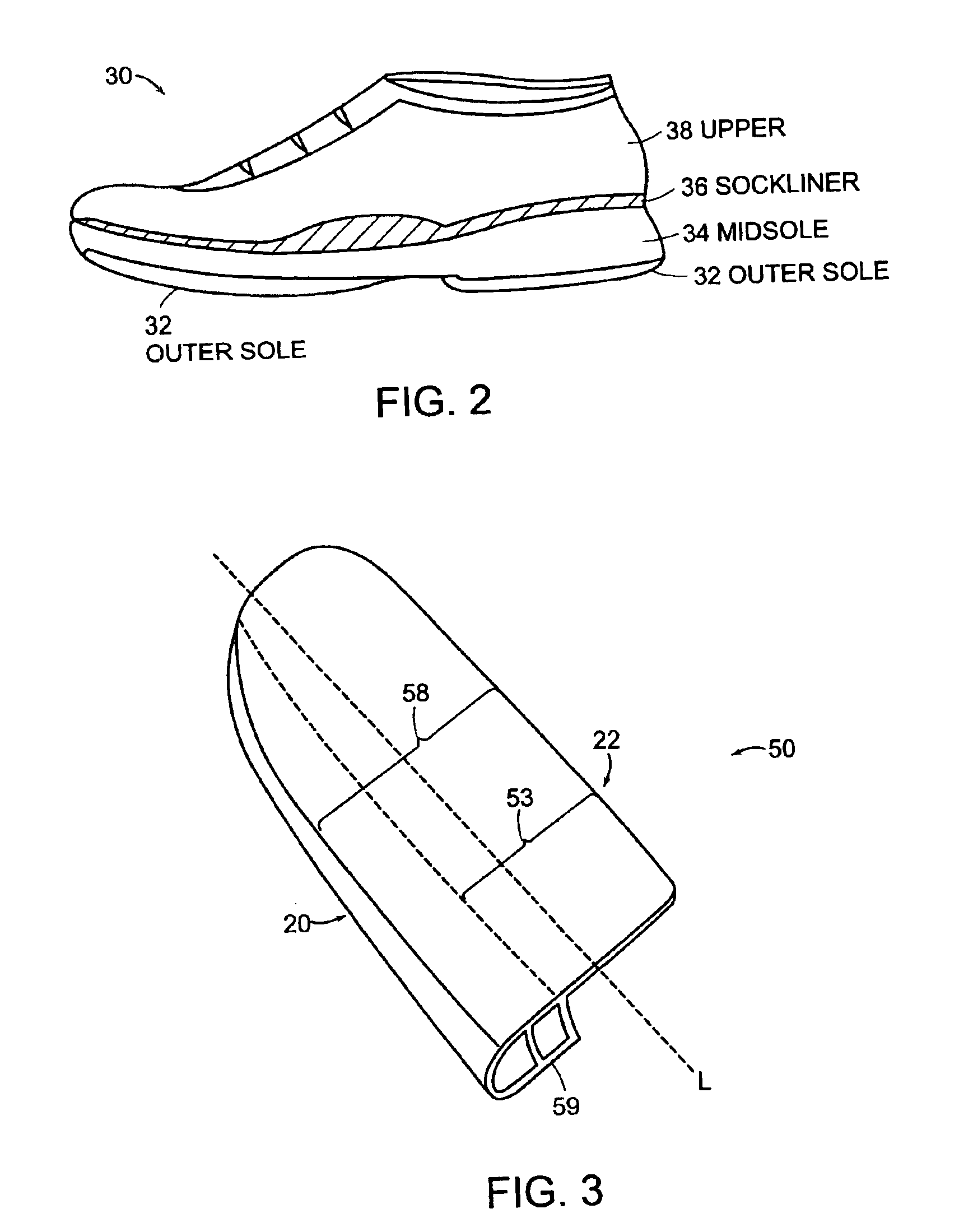Cantilevered shoe construction
- Summary
- Abstract
- Description
- Claims
- Application Information
AI Technical Summary
Benefits of technology
Problems solved by technology
Method used
Image
Examples
Embodiment Construction
[0028]Embodiments of the present invention relate to a shoe construction for preventing knee and hip osteoarthritis and simultaneously improving athletic performance. More particularly, the embodiments provide a footwear construction that reduces the external torque about the knee (varus) and the hip (adductor). In general, a cantilevered medial foot support is provided for supporting the medial side of a wearer's foot. The foot support is anchored laterally and cantilevered medially to transfer forces from the weight of the body that would otherwise be directed to the medial side of the shoe and foot, to the lateral side of the shoe and foot.
[0029]FIG. 1 illustrates the various portions of a foot 10, including the heel portion 12, midfoot portion 14, forefoot portion 16, and toe portion 18.
[0030]FIG. 2 illustrates an article of footwear 30, such as an athletic shoe, sports shoe, or running shoe. Generally, the shoe 30 includes an outer sole 32 which makes direct contact with the gr...
PUM
 Login to View More
Login to View More Abstract
Description
Claims
Application Information
 Login to View More
Login to View More - R&D
- Intellectual Property
- Life Sciences
- Materials
- Tech Scout
- Unparalleled Data Quality
- Higher Quality Content
- 60% Fewer Hallucinations
Browse by: Latest US Patents, China's latest patents, Technical Efficacy Thesaurus, Application Domain, Technology Topic, Popular Technical Reports.
© 2025 PatSnap. All rights reserved.Legal|Privacy policy|Modern Slavery Act Transparency Statement|Sitemap|About US| Contact US: help@patsnap.com



